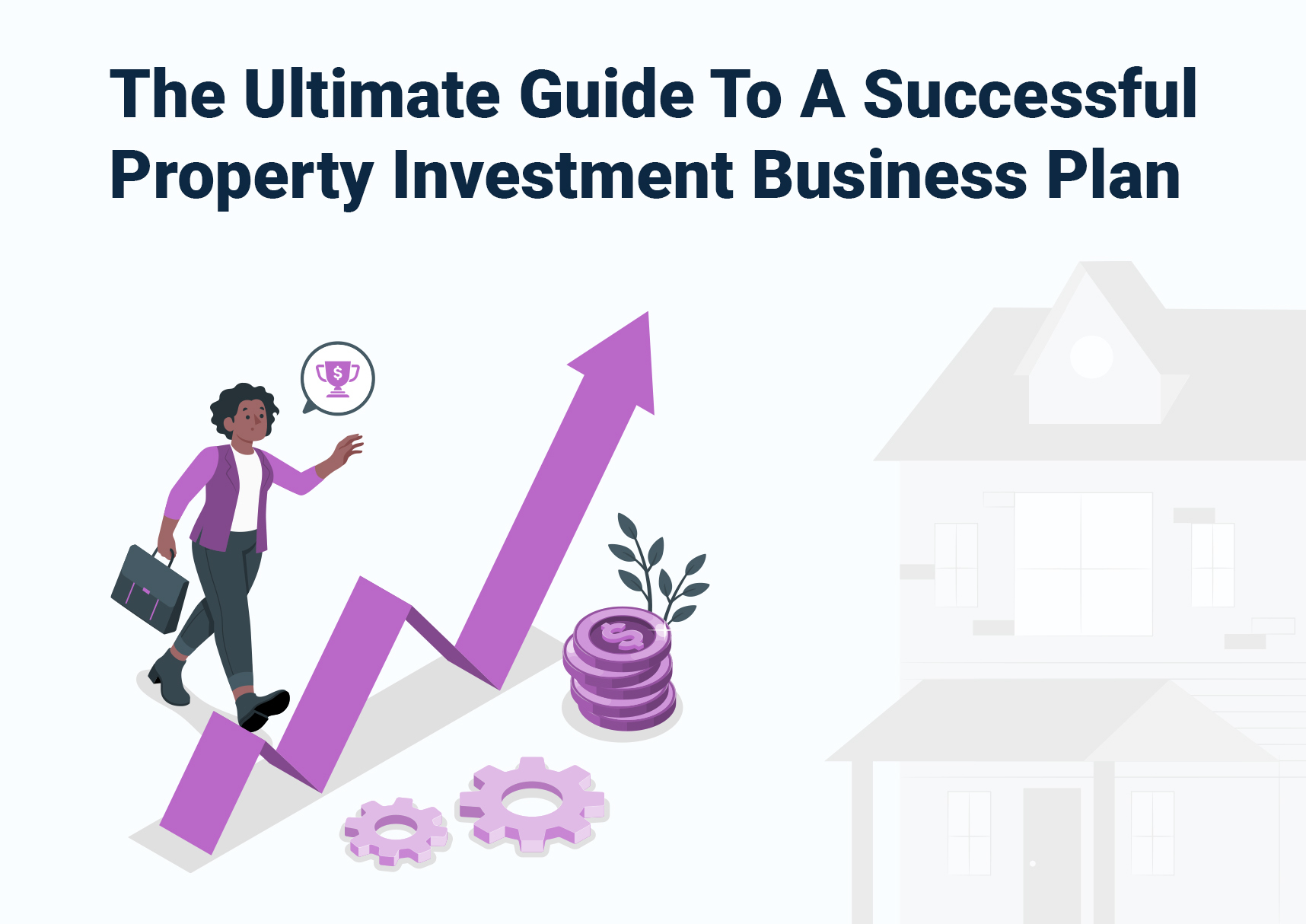The Ultimate Guide To A Successful Property Investment Business Plan

It’s not a secret that successful property investment is all about creating the right business plan. It can be overwhelming to get started, especially when you begin to see the amount of information out there. Here at Aspen Woolf we want to take some of that terrifying pressure off you and give you a quick checklist in order to make the most strategic business plan for yourself and your property investment needs.
“The starting point for any good business plan is to decide on an overall goal.”
The starting point for any good business plan, as well as a property investment one is to decide on an overall goal. This might seem like an obvious first step to some, whereas many seem to be skipping it. A sound plan is more important than you think.
Namely, if you don’t know what you’re aiming for, then how do you know if you’re making progress or not? How would you even know how to get there if you don’t know where you’re going? Consider your investment goals carefully, as they will be the ground pillars of your business plan.
One of the most common pitfalls of many investors is not being clear on those goals. Even skipping thinking about them altogether. This, in turn, manifests itself as both a poorly made business plan and also a potential financial catastrophe.
Another problem of a poor quality business plan for property investment is that investors focus too much on the financials. And still, a lot of people get repeatedly rejected by lenders when applying for funding. It’s easy to feel disheartened and hopeless because it seems like you’ll never get funded and you won’t ever be able to start your property investment business.
So what’s the solution? The answer is simple: you need to focus on the quality of your investment property business plan, not the quantity of information in it. A well-written business plan will give you a better chance of getting approved for funding, and it will also help you to clarify your goals and strategies.
Here are 10 tips to make your property investment business plan stand out:
 1) Know your target market
1) Know your target market
This will help you determine what type of property to purchase, what location to invest in, and how to appeal to your target market. Think about these questions: Do you want an apartment that may have regular renters for a longer period of time? Would you prefer to target the student market and invest in an HMO? Or do you want to rent out a house with the goal of selling for profit within a few years?
You can find more information about making passive income from property investment, here.
2) Have a clear investment strategy
This will help you stay focused and on track, and will make it easier to track your progress. Just having a sound investment strategy will enable you to know the types of property to invest in and when narrowing your target market to those that will work best for you.
3) Understand your financing options
This will help you secure the best possible financing for your investment. Typical property finance options see lenders require at least 25% of the property price down, and sometimes a higher down payment of 30% may be required depending on the property and your financial situation.
4) Make sure your business plan is realistic
This will help you avoid making any unrealistic assumptions that could lead to problems down the road. It’s important that the objectives set for your business plan are realistic and deliverable. However complex it may seem to be as a whole, the property investment business plan needs to be easily understood by both you and the people whose job it is to make it work.
5) Have a solid exit strategy
This will help you maximize your profits and protect your investment. Essentially, an exit strategy describes how you intend to exit your investment, which means selling the property as part of your property business plan. Your investment goals will play a big part in this decision. A good exit strategy for retirement should include selling your property before you retire so you can generate as much money as possible. Spend some time researching exit strategies to better understand it before incorporating it into your business plan. You can find more info and useful tips, here.
6) Have a professional team in place
This will help you with the day-to-day management of your investment. Building a great property buying team requires that you consider what kind of qualities you want from the individual.
7) Stay organized and keep good records
This will help you track your progress and make tax time a breeze. Keeping proper records is essential if you plan to make a claim against your rental property. There are a number of important documents you need to hold on to.
8) Keep your expenses in check
This will help you stretch your profits further. Think about what “emergency fund” you want to keep in cash, and deduct that from your total investable funds. You should have at least six months’ expenses in the bank at all times. Just to be on the safe side.
9) Understand the risks involved
This will help you make smart investment decisions and avoid any unnecessary risks. If you’d like to know more about the risks involved with investing in a piece of property, check out this article.
10) Have patience
This will help you weather any bumps in the road and ultimately succeed in the long run. Particularly when it comes to less liquid assets such as housing, investors must learn delayed gratification rather than immediate satisfaction.
If you can follow these tips, you’ll be well on your way to writing a successful property investment business plan.
Investing in property can be a lucrative avenue and this ultimate guide can help you on your way to getting onto the property ladder in the UK, successfully. Just remember to ensure your property investment business plan is bulletproof. Also, you need to fully understand your responsibilities, get to know the market, potential yields and scope for capital growth on the property, as well as staying up to date on property trends. To talk to our experts and gain strategic advice on making a property investment, get in touch today.

